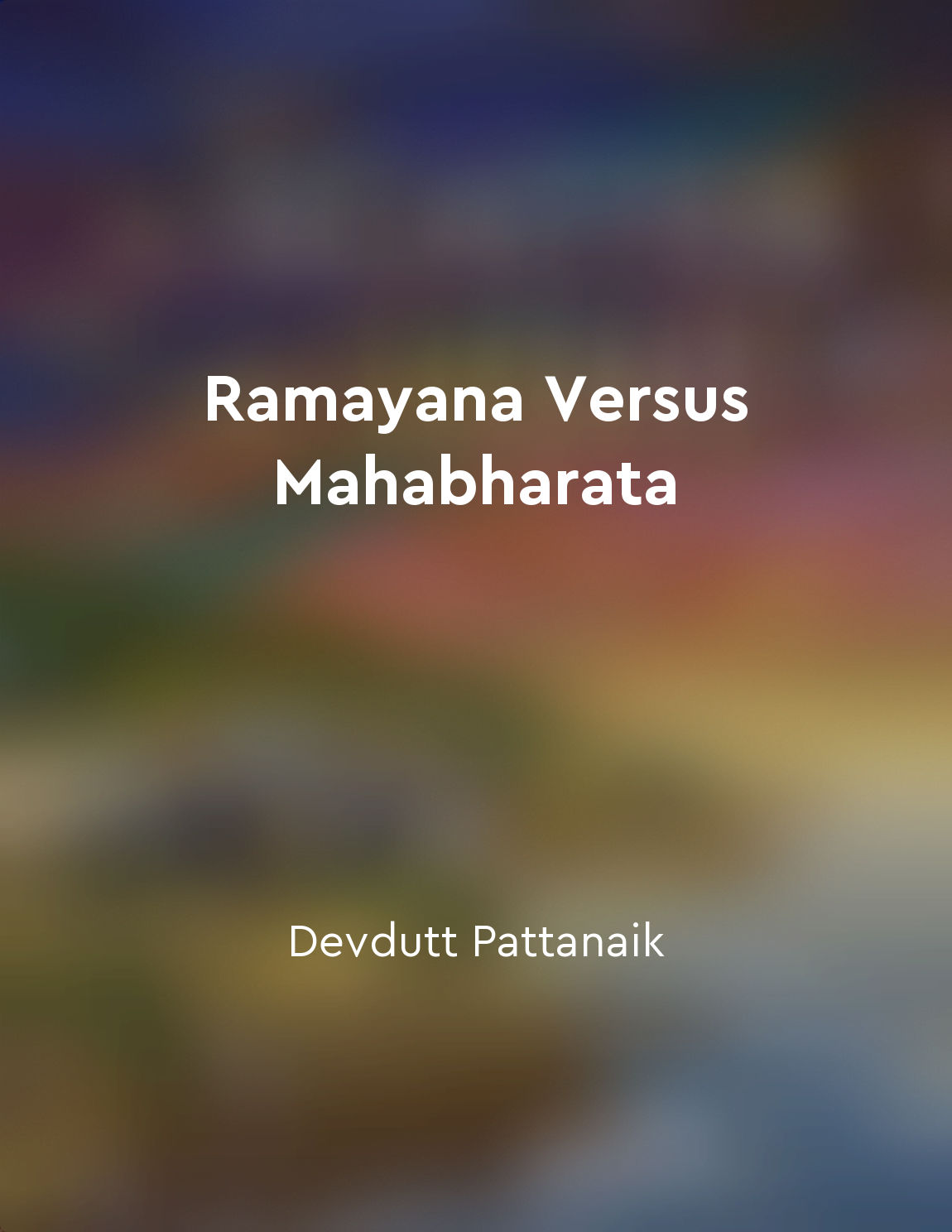The power of storytelling and mythology in conveying Hindu values from "summary" of Why I Am a Hindu by Shashi Tharoor
One cannot underestimate the significance of storytelling and mythology in the Hindu tradition. These narratives serve as powerful tools for conveying essential values and teachings to believers. Through captivating tales of gods and goddesses, demons and sages, Hindu mythology imparts valuable lessons on morality, ethics, and spirituality. The richness of these stories lies not only in their entertainment value but also in their ability to educate and enlighten. By weaving moral dilemmas and ethical quandaries into these narratives, Hindu mythology provides a framework for understanding right and wrong. Characters such as Lord Rama and Lord Krishna serve as moral exemplars, demonstrating the importance of duty, righteousness, and compassion. Through their actions and decisions, these deities offer valuable insights into navigating the complexities of life and upholding one's principles. Moreover, Hindu mythology offers a glimpse into the deeper philosophical underpinnings of the faith. Concepts such as dharma, karma, and moksha are elucidated through the stories of ancient sages and seers. By exploring these profound ideas within a narrative context, believers can better grasp the complexities of the Hindu worldview and their implications for one's life. The power of storytelling lies in its ability to engage the imagination and evoke emotional responses. By presenting abstract concepts in a tangible and relatable manner, these narratives make profound philosophical ideas accessible to a wider audience. Through the evocative imagery and symbolism of Hindu mythology, believers can connect with the divine and contemplate the mysteries of existence.- Storytelling and mythology are the bedrock of Hindu culture and spirituality. They serve as a bridge between the past and the present, conveying timeless values and teachings to successive generations. Through these narratives, believers can find guidance, inspiration, and solace in the eternal truths of the Hindu tradition.
Similar Posts
Vedic scholars were highly respected in society
During the Vedic period in ancient India, scholars held a significant position in society. Their knowledge of the Vedas, the sa...

Epics Ramayana and Mahabharata talk about duty, love, war, betrayal
The Ramayana and the Mahabharata are two ancient Indian epics that delve into the complexities of human existence. They are not...
Myths reflect societal values and norms
Myths serve as mirrors, capturing the essence of the cultures that create them. They encapsulate the collective psyche of a soc...
Symbolism plays a significant role in Hindu practices
Symbolism holds a profound place in the practices of Hinduism. It serves as a vital component in the expression of belief and d...
The Enlightenment ushered in an era of reason and rational thought
The Enlightenment marked a turning point in human history, as thinkers began to prioritize reason and rational thought over sup...
Symbols in myths communicate deep meanings
Symbols in myths are not merely decorative elements; they serve a deeper purpose in communicating profound meanings. These symb...
The influence of Buddhism and Jainism has shaped Hindu practices
The history of India is a tapestry woven with the threads of various religions and philosophies. Among these, Buddhism and Jain...
The practice of seva as selfless service
Seva, as described in the scriptures, is the act of selflessly serving others without any expectations of personal gain or reco...
The importance of seva, or selfless service, is highlighted in Hinduism
The concept of seva, or selfless service, is deeply ingrained in Hinduism. It is considered a fundamental aspect of the religio...


